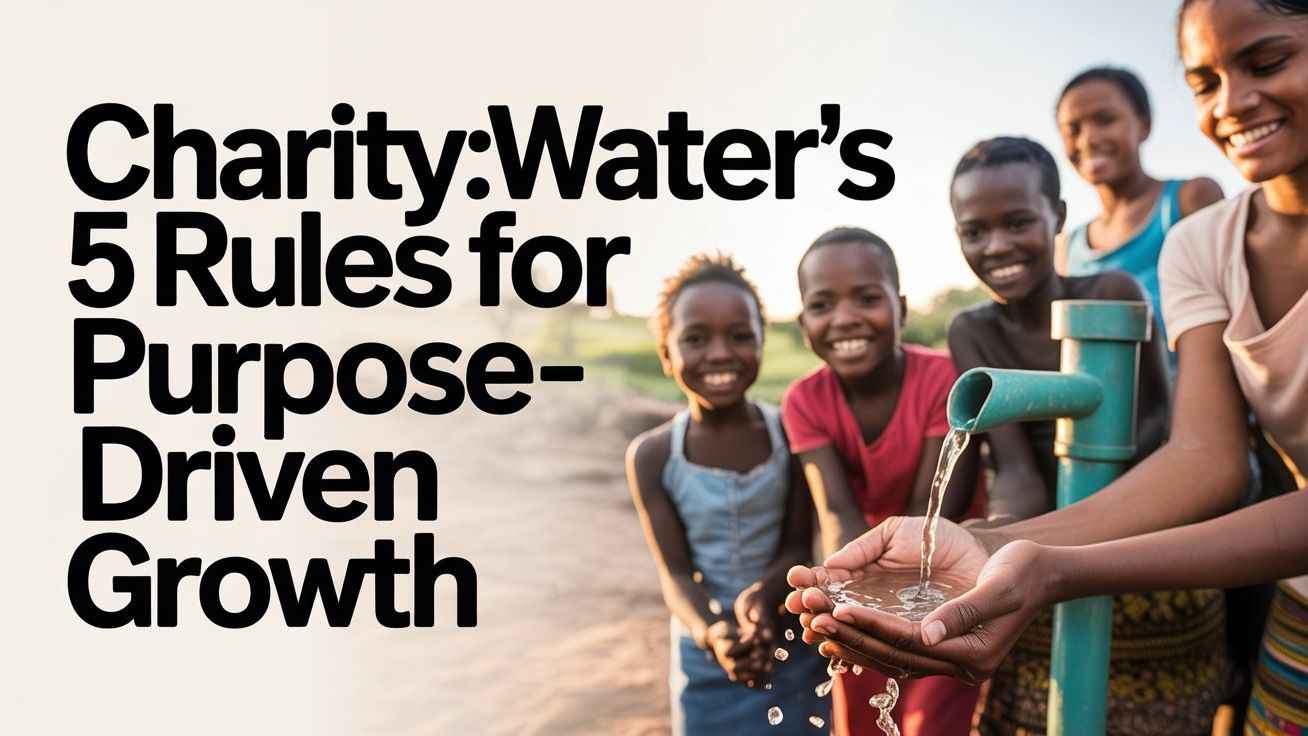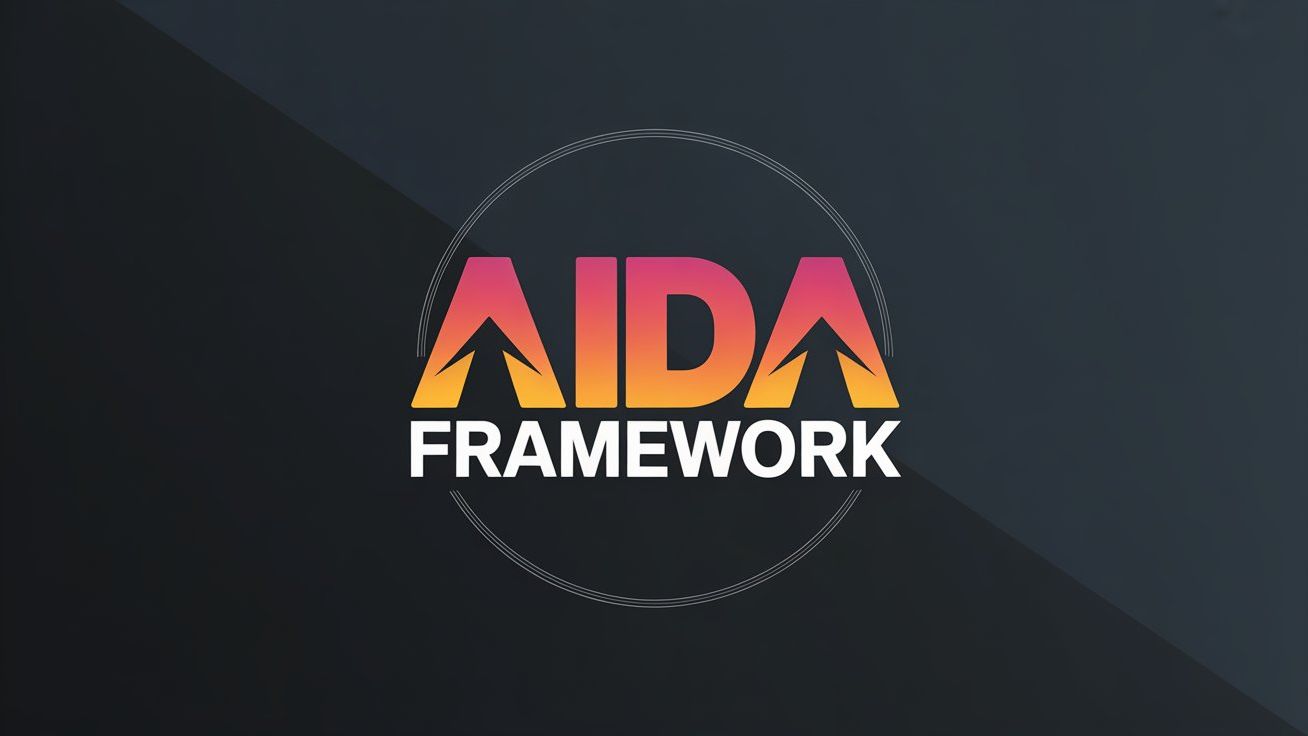
Nonprofit StoryBrand: How To Create 2 Different BrandScripts For Maximum Impact
Jan 03, 2025You understand that a compelling story for your nonprofit is crucial for presenting a clear and compelling message.
But how does a StoryBrand SB7 Brand Script differ for a nonprofit?
This question often stumps even seasoned nonprofit marketers.
The StoryBrand framework by Donald Miller has changed how organizations communicate. This framework gives nonprofits a powerful way to connect with their target audience and supporters. Let's explore how to apply StoryBrand to nonprofit communications and marketing together.
Table Of Contents:
- Understanding the StoryBrand Framework
- The Nonprofit Difference: Two Audiences, Two Stories
- Why you need two different brand scripts
- The Mission-Based Brand Script
- The Donor-Based Brand Script
- Key Elements of a Nonprofit StoryBrand Script
- Empathy and Authority
- Clear and Compelling Problem Statement
- Donor as the Hero
- Crafting Your Nonprofit's StoryBrand Script
- Step 1: Identify Your Two Audiences
- Step 2: Define the Character's Wants
- Step 3: Articulate the Problem
- Step 4: Position Your Nonprofit as the Guide
- Step 5: Outline Your Plan
- Step 6: Call to Action
- Step 7: Paint a Picture of Success and Failure
- Implementing Your Nonprofit StoryBrand Script
- Website Optimization
- Email Campaigns
- Social Media Strategy
- Fundraising Materials
- Final Thoughts
Understanding the StoryBrand Framework
The StoryBrand framework uses storytelling elements to clarify your nonprofit's message. It engages your audience by creating a compelling brand message. The framework has seven key components.
- A Character (Hero).
- Has a Problem.
- Meets a Guide.
- Who Gives Them a Plan.
- And Calls Them to Action.
- That Helps Them Avoid Failure.
- And Ends in Success.
This StoryBrand process takes on a different approach when used by a nonprofit. Nonprofits need to address their mission and the donor's role.
The Nonprofit Difference: Two Audiences, Two Stories
Why you need two different brand scripts
StoryBrand is a powerful framework to help you clarify your message. But here’s the thing: you probably need two StoryBrand SB7 Brand Scripts.
Your donors are heroes, but so are your beneficiaries. This means you have two distinct stories to tell. One story focuses on how donors can make a difference through you. The other story shows how you empower beneficiaries to overcome challenges.
Think about it. Donors and beneficiaries have different motivations. Donors want to feel like they're part of something bigger. They want to know their money is doing good. They want to feel the impact of their gift.
Beneficiaries, on the other hand, have a problem they need solved. They need help, and you're the guide to get them there. Your nonprofit is the hero in their story, providing the solution they desperately need.
Nonprofit StoryBrand Script Differences
For Donors
Problem
Lack of access to academic support for high school students limits their opportunities and hinders progress in disadvantaged neighborhoods.
Solution
Your donation helps connect tutors and mentors with students, bringing hope and and a brighter future to those who need it most.
Call to Action
Donate today and become a part of the solution, making a tangible difference in the lives of students and see the change in their future.
For Beneficiaries
Problem
You struggle to support your school-aged kids with support with their school work and academic studies, threatening their academic progress and future potential.
Solution
We provide academic tutors and mentors for driven students, empowering them to build a brighter future for themselves and your community.
Call to Action
Contact us to learn how to get paired up with a mentor and tutor in your community, and take the first step towards a seeing your child thrive in school and build a meaningful future.
See the difference?
Two audiences, two stories.
Two StoryBrand SB7 Brand Scripts.
By crafting separate scripts, you can speak directly to the needs and desires of each audience. This helps you connect more deeply. And a deeper connection leads to greater impact.
Using two StoryBrand scripts doesn’t mean double the work. It’s about working smarter, not harder. Because when your message is clear, your mission thrives. And so do the people you serve.
So the major difference for nonprofits using the StoryBrand framework is thinking through the two distinct audiences:
- The beneficiaries of your mission.
- The donors who support your cause.
This means nonprofits need two separate Brand Scripts. Each one should be designed with the specific target audience in mind. Let's look at what that means in more detail.
The Mission-Based Brand Script
The mission-based script centers on the people or cause the nonprofit serves. Here's how it follows the framework.
- The Character: The people or groups helped.
- The Problem: The challenges they experience.
- The Guide: Your nonprofit.
- The Plan: Programs and interventions.
- The Call to Action: How to receive help.
- Failure: What occurs if problems aren't fixed.
- Success: Positive change from the nonprofit.
The Donor-Based Brand Script
The donor-based script positions supporters as the story's heroes. It differs significantly from the mission-based script.
- The Character: Potential donors.
- The Problem: The donor’s desire to impact change.
- The Guide: Your nonprofit.
- The Plan: How donations are utilized for impact.
- The Call to Action: Donate or get involved.
- Failure: Not taking action.
- Success: Positive change the donors create.
With this method, nonprofits engage both the served and the supporters.
Key Elements of a Nonprofit StoryBrand Script
Here are a few important parts of a good copywriter pays attention to while developing the StoryBrand BrandScripts.
Empathy and Authority
Nonprofits need to balance empathy with authority in their messaging. Show you understand beneficiaries’ issues.
In donor scripts, acknowledge their passion to create positive change.
Build trust by sharing your expertise and history. This reassures both groups.
Clear and Compelling Problem Statement
Clearly explaining the problem is very important. Address all levels.
- External Problem: The surface issue.
- Internal Problem: The emotional effect.
- Philosophical Problem: The big-picture moral issue.
Addressing all three creates a resonant, urgent narrative. This helps you connect with beneficiaries and donors don't.
Donor as the Hero
The donor is the hero in a nonprofit’s donor-based Brand Script. This crucial shift encourages donor engagement and giving.
Focus on how donors are the heroes through giving. Tap into the want to do good. It works.
Crafting Your Nonprofit's StoryBrand Script
Here’s how to create your StoryBrand script. Follow these steps to craft a powerful message.
Step 1: Identify Your Two Audiences
Define your audiences: beneficiaries and potential donors. Understanding them focuses each script.
Step 2: Define the Character's Wants
What do beneficiaries want to change? What impact do donors hope to make?
Step 3: Articulate the Problem
Define problems for both. What challenges do beneficiaries face? What frustrates donors? Include the external, internal, and philosophical.
Step 4: Position Your Nonprofit as the Guide
Show your nonprofit has the solutions. Share data and successes. Use the framework effective to help your target audiences.
Step 5: Outline Your Plan
Create clear plans. Explain how beneficiaries access services. Show donors how their support creates change.
Step 6: Call to Action
Make direct calls to action. How can beneficiaries get help? How can donors give or get involved? Make it very clear.
Step 7: Paint a Picture of Success and Failure
Describe outcomes for each audience. What good things happen when people engage? What are the consequences of not acting? Be specific.
Implementing Your Nonprofit StoryBrand Script
Here's how to put your new Brand Scripts to good use throughout your marketing.
Website Optimization
Make your StoryBrand website the central hub for information. Your website needs clear information for both audiences using each Brand Script. Targeted landing pages for each group can be useful.
Email Campaigns
Use the correct Brand Script for email marketing campaigns. Highlight impact and results for donors. Emphasize how to access help in emails to beneficiaries.
Social Media Strategy
Use your scripts to enhance social media. Share stories of impact. Show how donations make a difference while raising awareness of needs.
Fundraising Materials
The donor-based script should drive all fundraising. Emphasize their role as heroes and the real impact of their donations.
| Brand Script Element | Mission-Based Script | Donor-Based Script |
|---|---|---|
| Character | Beneficiaries | Donors |
| Problem | Challenges faced | Desire to make a difference |
| Guide | Your nonprofit | Your nonprofit |
| Plan | How to access help | How donations create impact |
| Call to Action | Get help | Donate/Get involved |
| Success | Problem solved | Impact made |
| Failure | Problem persists | Missed opportunity to help |
Final Thoughts
Understanding StoryBrand for nonprofits is essential for engaging everyone involved. By using two distinct scripts, you connect with each audience, leading to greater support and mission impact.
If you have to choose one first, make the beneficiaries the hero and clearly define the problems you solve for the challenges they face directly. By mastering this storytelling, you will empower those you serve and those who give.
Craft your Brand Scripts and become more confident in your storytelling today. See how the framework helps both the people you help and the donors who give. If you need help applying Storybrand and building trust through clear messaging and storytelling, let's talk!







